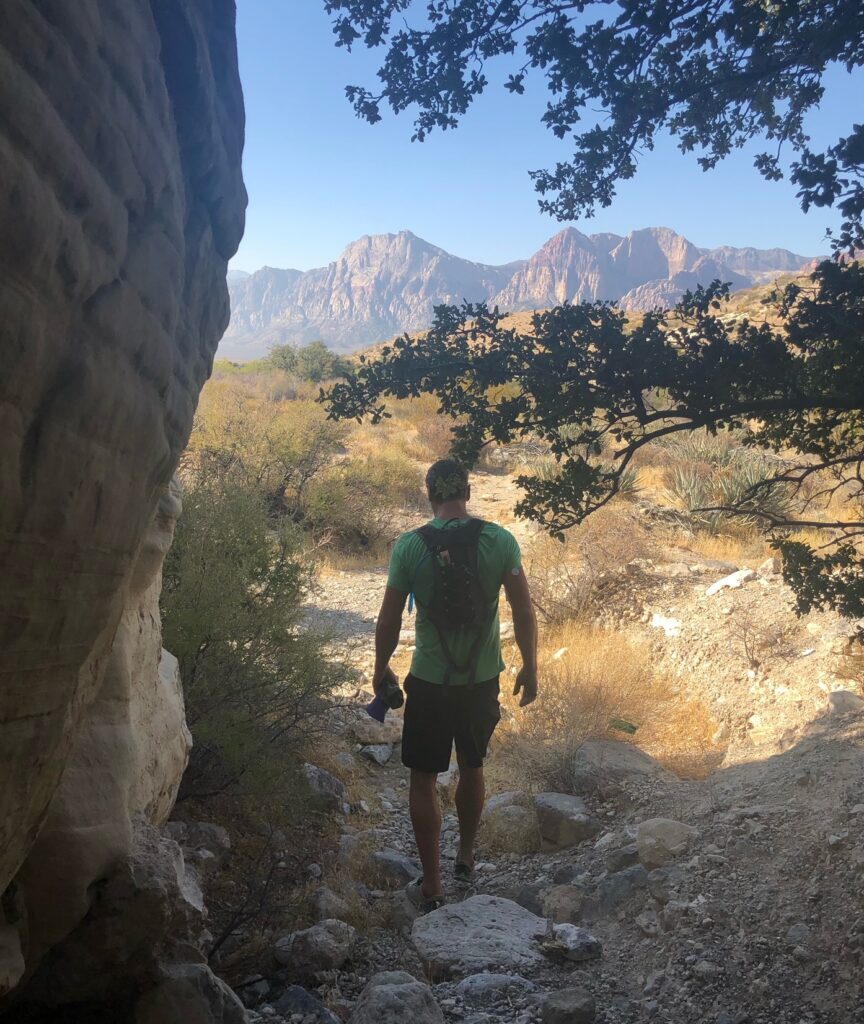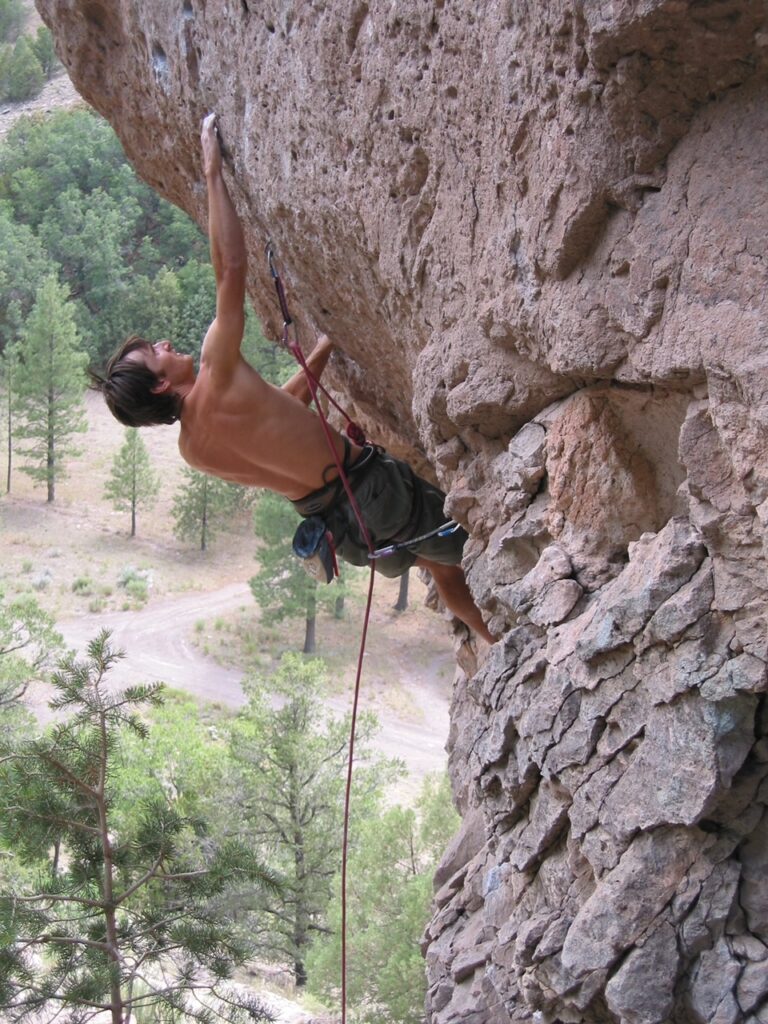Lots of people say what they’re going to do, but not everyone does what they say.
“I’m going to …”
- lose 30 pounds
- leave a toxic job
- learn a brand new skill
But many times, the follow through just doesn’t happen. There are lots of reasons for this rooted in human nature. None of us like to fail, and most of us would rather stay in a comfortable place than risk the uncertainty of trying something new. Fear of failure, of rejection, of the unknown, even of success… it simply paralyzes us.
I’ve been working on this myself for a long time, and with self-knowledge, I’m definitely getting there. But I know someone who has always done what he says he will do.
My husband, Trent.

One day while walking the dog on a desert trail outside our Las Vegas home, Trent came upon an elderly couple. The woman was laying on the trail, and her husband was holding her droopy head in his hand.
“Do you need some help?” Trent asked.
“Well, maybe… Yes,” said the man.
Trent called 911 and described the location of the trail with a possible point of access for emergency personnel. The woman was alive without obvious injuries, but she was weak and incoherent. Apparently, she had fainted while they were walking. Neither of them had any sort of phone, water, or supplies with them.
My husband stayed with them until EMS arrived. He learned that the woman had been recently treated for a cancer, and despite wanting to continue with the couple’s daily ritual of taking walks, she had been feeling very weak as a result of her treatments. Our loyal and amazing dog Epic sat quietly beside the trail during the whole scene. Other walkers passed by without even a second look or comment.
Fast forward weeks later, and Trent saw them again on the trail. The woman’s condition was much improved. They struck up a conversation. That was almost 2 years ago, and they continue to regularly meet and chat on the same trail.
This couple knows all about our family, knows my occupation, our daughter’s age, our interests and our activities. I’ve never met them because the stars haven’t aligned such that I’ve been walking with Trent when he runs into them, and sometimes months go by without any interaction (like when we’re traveling).
He just saw them again and told them about our recent purchase of an off-grid, alpine property in Utah, how we’ve been living on the land and improving it, and how much we love the area. They knew from previous updates that we shifted our thoughts away from sailing and traveling the world and toward the search for a beautiful property. They said,
“Wow. The stuff you talk about… you end up doing.”
He’s always been this way, and I’m fortunate to learn by osmosis. So I’ve been thinking – with his input – about what makes the “do what you say” principle such an integral part of his (and in turn my) life. Maybe these tips can help you take more action on the things you say you want to do.
Know yourself
Trent has always been extremely self-aware. He knows his core values, his personality, and what it will take to reach his goals. I’ve observed this in him for years, all the while blinded by my own ego and desire to remain on the treadmill of achievement as a measure of my worth… until I got sick. Then I realized that I’d been missing out on this important skill.
The only way to improve your self-awareness is to embark on a self-knowledge journey. Contemplate your values, your “mission statement” for life. Journal on what you really want; which of the things you talk about doing are REALLY what you want vs. what you think others want you to want. If you want more help with this, contact me!
Be willing to take a different path
He might be a Questioner inherently, but Trent also happens to question any rules or obstacles that are put in front of him. You don’t have to have the Questioner tendency to simply ask: What are your “shoulds”? What rules have you made for yourself that don’t even really apply? Having a growth mindset that you can do hard things is key to having the courage to do what you say you will do.
You have permission to not be “normal”. To do things differently than everyone else. And if you try something and it doesn’t work out, what’s the worst thing that could happen? Being able to calculate risks and embrace them is an important part of doing what you say.

Ignore haters
When you consistently say what you’re going to do, there will be people in your life who will be threatened by this. I’ve seen it with Trent, and I’ve experienced it myself. When his climbing abilities really started taking off, a couple of his regular climbing partners decided they didn’t want to climb with him anymore. It wasn’t for any other reason than the fact that they had a tough time watching him send his projects. All. The. Time.
Yeah, it hurts when friends, family, or colleagues don’t appear supportive, but their business is not your business. When I think this is a possible cause of conflict, I try to employ empathy as opposed to pushing back and amplifying any negative vibes. It’s tough for people to witness others doing amazing things, while they continue possibly suffering in their own ruts. Comparison is something we all deal with at times, and it’s not fun to be on either side of the game.
Remember that you owe no one an explanation or justification for your actions, and this works in both directions.
What do you think? What’s your current track record for doing what you say you will do? Can you think of any ways you can improve it? Let me know by leaving a comment below!



 The Value of a Mini-Reset Right Now
The Value of a Mini-Reset Right Now

Thanks for the tips. I’m adding this to my Fawcett’s Favorites on Monday.
Dr. Cory S. Fawcett
Financial Success MD
Thanks, Cory! I’m excited you found value in it!